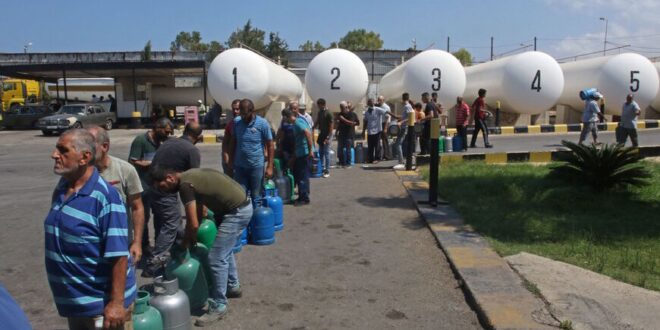A meeting of Jordanian, Egyptian, Lebanese and Syrian ministers seems to have cracked Syria’s isolation.
Four Arab countries have agreed on a road map to supply Egyptian natural gas to Lebanon through Jordan and Syria during a ministerial meeting in Amman on Sept. 8. They also approved a plan to supply Jordanian electricity at a later stage to energy-starved Lebanon through Syrian territory.
The ministerial meeting was attended by Jordan’s Minister of Energy and Mineral Resources Hala Zawati, Egyptian Minister of Petroleum and Mineral Resources Tarek El Molla, Syrian Minister of Oil and Mineral Resources Bassam Tohme and Lebanese Minister of Energy and Water Raymond Ghajar.
Ambassador to Lebanon Dorothy Shea first expressed US support for the proposal in a phone call to President Michel Aoun, according to an Aug. 19 statement from the Lebanese presidency. An informed source who requested anonymity told Al-Monitor that the idea was suggested by King Abdullah of Jordan during his visit to the White House last July.
During the Amman meeting, Zawati announced that Lebanon could be supplied with gas from Egypt via an existing pipeline that passes through Jordan, Syria and Lebanon as soon as the Syrian government rehabilitates its section of the pipeline. Ghajar said that the Egyptian gas will enable Lebanon to generate enough electricity to provide Lebanese households with four hours of power a day. He added that Lebanon is in contact with the World Bank to finance the cost of Egyptian gas.
Syria’s Minister of Electricity Ghassan Al Zamel was quoted by Syria’s Al Wattan newspaper on Sept. 7 as saying that the electric grid in southern Syria would cost $3.5 million to rehabilitate.
The Amman meeting was seen as a diplomatic breakthrough for the Syrian government, which has been politically isolated from most Arab countries since the eruption of the Syrian uprising in 2011.
Abdullah has advocated for a new diplomatic approach to Syria to address the suffering of the Syrian people after more than a decade of war and sanctions, the regional crisis of Syrian refugees and the reality that Syrian President Bashar Al-Assad seems set to retain power for the foreseeable future.
In addition to his White House meeting with US President Joe Biden in July, the king flew to Moscow on Aug. 23 and met with President Vladimir Putin to discuss the Syrian conflict.
That both Amman and Cairo took steps toward implementing the US-backed proposal has sparked discussions of a possible shift in Syria policy, sparked by Lebanon’s economic crisis. The United States has imposed sanctions on parties dealing with Syria through the Caesar Act, but Al-Monitor’s source said that Abdullah was assured that the Biden administration can waive sanctions on certain dealings with the Syrian regime.
Hezbollah Secretary-General Hassan Nasrallah announced Aug. 14 that Iran was ready to send oil tankers to Lebanon to help end the fuel crisis. The United States hopes to derail Nasrallah’s attempt to make Lebanon more dependent on Tehran.
A high-level Lebanese ministerial delegation visited Damascus on Sept. 4, for the first time in 10 years, to ask for approval to supply Lebanon with Egyptian gas and Jordanian electricity. Syria was quick to say it was ready to help.
Former Jordanian Minister of Transport Malek Haddad said that the Amman meeting is a step toward exempting Jordan from sanctions under the Caesar Act. He wrote for Ammaonnews.net on Sept. 9 that doing so would help Jordan resume trade ties with Syria and enable it to participate in its reconstruction.
But beyond the economic impact, Jordan hopes that normalization with Syria will lead to Russia and the United States reengaging to find a political settlement to the Syrian conflict. The shared aim, according to Al-Monitor’s source, is to lure Assad away from Iran, a goal also in the interests of Jordan, Egypt, Lebanon and Israel.
Jordan and Egypt share the view that it is important to bring Iraq and Syria back to the Arab fold. The two countries have formed an economic bloc with Iraq in what Iraqi Prime Minister Mustafa al-Kadhimi called “a new Levant,” and the door was left open for Syria to join in the future. Washington supports this new bloc, which will distance Baghdad from Tehran, among other things.
On the same day as the Amman meeting, Syrian government forces entered the old city of Daraa in the south after weeks of siege. Russia negotiated a deal with the rebels to end the siege and allow government troops to enter the city peacefully. Now that the Syrian government had recaptured Daraa, implementing the gas deal will be possible. The recapture of the Daraa province by Syrian government forces is crucial to facilitating the passage of Egyptian gas and later Jordanian electricity to Lebanon. Daraa province is a major part of the gas pipeline that goes all the way to Lebanon.
Experts believe it will take a few months for the natural gas to flow through Syrian and Lebanese territory.
 Eurasia Press & News
Eurasia Press & News


